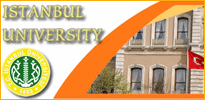Europe: Europe Education Profile
2012/08/14
Europe Education Profile
Europe has a rich cultural heritage dating from the Greek and Roman civilizations. Many of Europe's schools and universities attract students from all parts of the world. In most European countries, however, higher education is not readily available to the mass of the people. Frequently, only the brighter children and children from wealthy families are given the opportunity of advanced education.
Quality of education varies greatly throughout the continent. In the west, from France to Scandinavia, the people are well educated in public, private, and church schools. Because of compulsory education, almost all the people are literate. In the south and east, education is less advanced. There are fewer schools and universities, and illiteracy is still a problem. In Albania, for example, about 25% of the people over 10 years of age are illiterate; in Portugal, about 11%.
Europe has around 4,000 higher education institutions, with over 19 million students and 1.5 million staff. Some European universities are amongst the best in the world, but overall potential is not used to the full. Curricula are not always up-to-date, not enough young people go to university after finishing school and not enough adults have ever attended university. European universities often lack the management tools and funding to match their ambitions.
Governments and higher education institutions are looking for ways to creating better conditions for universities.
The European Commission has published a modernisation agenda for universities which was welcomed by the Member States and the main stakeholders in higher education. The modernisation agenda for universities is part of the Lisbon Strategy for Growth and Jobs. The main fields of reform are:
- * Curricular reform: The three cycle system (bachelor-master-doctorate), competence based learning, flexible learning paths, recognition, mobility.
- * Governance reform: University autonomy, strategic partnerships, including with enterprises, quality assurance.
- * Funding reform: Diversified sources of university income better linked to performance, promoting equity, access and efficiency, including the possible role of tuition fees, grants and loans.
Curricular reforms are also promoted through the Bologna Process, in which 46 countries in the wider Europe are working towards establishing the European Higher Education Area by 2010.
The European Commission helps EU member states and neighbouring countries in their modernising efforts through policy initiatives, discussion papers and events, as well as through EU programmes promoting mobility in education such as Erasmus, Tempus and Erasmus Mundus.
The majority of Europeans spend at least nine or ten years at school. It is where they gain the basic knowledge, skills and competences that they need throughout their lives, and the place where fundamental attitudes and values develop.
Schools should set their pupils on the path to a lifetime of learning, if they are to prepare them for the modern world. A sound school education system also helps ensure open and democratic societies by training people in citizenship, solidarity and participative democracy.
- Europe News
-
- WORLD: Tuition fees row: education expert warns over graduate earnings
- WORLD: UN report attacks austerity budgets for growing inequality
- FRANCE: Aluminium-Lithium Alloys Fight Back
- UNITED KINGDOM: Jaguar Land Rover Takes Next Step in Aluminium Recycling with REALITY Program
- EUROPE: Ball Corporation Debuts Three New Aluminium Beverage Can Sizes
- CHINA: Zhongwang Acquires German Alumnium Extrusion Firm ALUnna
- Trending Articles
-
- SOUTH AFRICA: Nigeria and South Africa emerge from recession
- BAHRAIN: Bahrain issues new rules to encourage fintech growth
- ANGOLA: Angola: Elections / 2017 - Provisional Data Point Out Qualified Majority for MPLA
- WORLD: How fair is our food? Big companies take reins on sourcing schemes
- CHINA: Russian firm seals energy exploration deal to drill South African shelf
- NIGERIA: Nigeria has been one of the hardest-hit economies due to its over-dependence on oil












